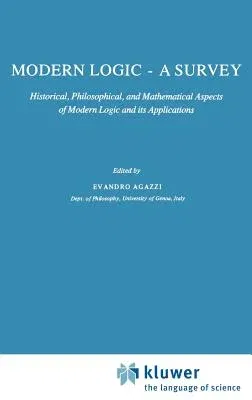Modern Logic -- A Survey: Historical, Philosophical and Mathematical Aspects of Modern Logic and Its Applications (1981)Hardcover - 1981, 30 November 1980

Qty
1
Turbo
Ships in 2 - 3 days
In Stock
Free Delivery
Cash on Delivery
15 Days
Free Returns
Secure Checkout

Part of Series
Synthese Library
Part of Series
Synthese Library (Hardcover)
Part of Series
Mathematical Physics and Applied Mathematics
Print Length
483 pages
Language
English
Publisher
Springer
Date Published
30 Nov 1980
ISBN-10
9027711372
ISBN-13
9789027711373
Description
Product Details
Book Edition:
1981
Book Format:
Hardcover
Country of Origin:
US
Date Published:
30 November 1980
Dimensions:
23.39 x
15.6 x
2.69 cm
ISBN-10:
9027711372
ISBN-13:
9789027711373
Language:
English
Location:
Dordrecht
Pages:
483
Publisher:
Weight:
866.36 gm